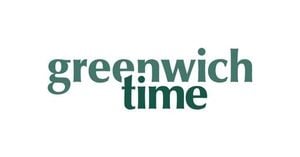Across the United Kingdom, the debate over tourist taxes is heating up, with local councils weighing the promise of extra funds for vital services against concerns from businesses and residents about economic impact and administrative headaches. As visitor numbers rebound and cities look to capitalize on booming tourism, the question remains: will these levies bolster local economies or risk driving travelers—and their wallets—elsewhere?
In Richmond, a leafy borough in southwest London famed for attractions like Kew Gardens, Hampton Court Palace, and Twickenham’s Allianz Stadium, the local council is exploring a £2-per-night tourist levy for accommodation providers. According to Nub News, the scheme could generate an estimated £600,000 annually, with the possibility of an additional £90,000 if visitor attractions are included. The council hopes to use these funds to transform day-trippers into overnight guests, spreading demand more evenly and boosting spending in town centers.
The proposed charge would be collected through a new Accommodation Business Improvement District (ABID), a model already in place in Manchester and Liverpool. Under the plan, hotels and short-stay serviced apartments would vote on whether to establish the ABID, making the levy a business-led initiative. The council’s Finance Committee recently agreed to collaborate with local businesses on the proposal, with a formal ballot to follow if a consensus is reached.
While Richmond’s plan is still in the consultation phase, it’s part of a broader trend across the UK, with other areas considering similar measures. City Hall is even mulling a London-wide tourist tax, which could see the Richmond scheme either operate independently or link up with the capital’s broader efforts if they materialize.
Meanwhile, north of the border, Scotland is moving swiftly to implement its own visitor levies. Edinburgh will soon become the first Scottish city to charge a tourist tax, with a 5% levy on accommodation stays set to take effect from July 24, 2026. As reported by BBC Scotland News, the charge applies to bookings made from October 1, 2025, and will be levied on hotels, B&Bs, holiday lets, hostels, guest houses, self-catering units, campsites, and caravan parks. Importantly, the tax is capped at the first five nights of any stay.
The revenue from Edinburgh’s levy must be spent on facilities and services used by business and leisure visitors. Ronald Little, general manager of the Holyrood Marriott hotel, expressed optimism about the scheme’s potential, telling BBC, “After a really busy summer the city can look a bit grubby and that’s just because we don’t have the money to keep it to a good standard. I think if we want it to continue to be a premium destination we need to make sure that visitors look at it and this is the amazing city that we know it is.”
Glasgow and Aberdeen are following suit, albeit with slightly different models. Glasgow’s 5% charge, launching in January 2027, is expected to raise a hefty £16 million annually for infrastructure improvements and events. Aberdeen’s planned 7% levy—set for April 2027 at the earliest—could generate up to £6.8 million a year, with the average hotel guest paying an extra £4.90 per night.
Scotland’s Visitor Levy Act, as explained by a Scottish government spokesperson to BBC, gives councils the authority to introduce such taxes after consulting local businesses, communities, and tourism organizations. But not everyone is on board. Island councils in Shetland, Orkney, and the Western Isles have either rejected or paused tourist tax plans, arguing that a “point of entry” levy—charged at ports and airports—would be more effective, especially given the 1.2 million cruise ship passengers visiting Scotland each year. Under current legislation, cruise passengers and campervan travelers parked roadside are exempt from the levy, a loophole some local leaders hope to close.
“If you can demonstrate the value... and it’s not going into a big black hole plugging a deficit, that’s what people want,” said Martin Fleet, chairman of Destination Orkney, echoing concerns that any funds raised must be transparently and locally reinvested.
Elsewhere, resistance is strong. In Argyll and Bute, the council recently decided to pause its visitor levy plans to seek more information on potential legislative changes, including the possibility of setting a flat-rate charge rather than a percentage. The Association of Scotland’s Self Caterers welcomed this pause as an “evidence-based and considered approach,” with chief executive Fiona Campbell stating, “They can now properly evaluate the implications of a levy and ensure any future approach is aligned with both local priorities and national policy direction.”
Campbell further emphasized the need for a “workable and fair system,” adding, “We desperately want to make this policy work—ensuring it doesn’t undermine the very sector it seeks to support—making Scotland a world-leader in sustainable tourism.” She urged that any future policy must be “fit for purpose given the swelling opposition from councils and businesses throughout Scotland.”
In East Ayrshire, the council has decided to rule out introducing a tourist tax until at least October 2027, citing minimal financial benefit. According to local reports, the levy would raise just £323,000 a year, barely covering the estimated £190,000 in annual running costs and £110,000 in setup expenses. With visitor accommodation revenue at £9.2 million—just a fraction of neighboring South and North Ayrshire—officials concluded that the scheme would “generate little or no additional income” once costs were considered.
Local businesses, particularly small and medium-sized operators, voiced concerns about rising costs and administrative burdens, fearing the levy could deter visitors and harm the sector. The East Ayrshire Tourism Network and similar groups elsewhere have echoed these worries. In South Ayrshire, a survey found 79.5% of respondents opposed to a tourist tax, while in Orkney and Shetland, more than 90% of residents rejected the proposals.
The Scottish Tourism Alliance has advised councils to hold off on new levies until the impact of Edinburgh’s scheme can be properly assessed. Council officers in East Ayrshire plan to continue discussions with neighboring authorities about a possible regional approach, which could help share costs and make a levy more viable in the future.
Despite the patchwork of policies and varying levels of enthusiasm, one thing is clear: the debate over tourist taxes is far from settled. As councils await the results of early adopters like Edinburgh, many are taking a cautious approach, seeking to balance the promise of new revenue with the need to sustain their vital tourism industries. The coming years will reveal whether these levies become a mainstay of local funding—or a cautionary tale for policymakers across the UK.






